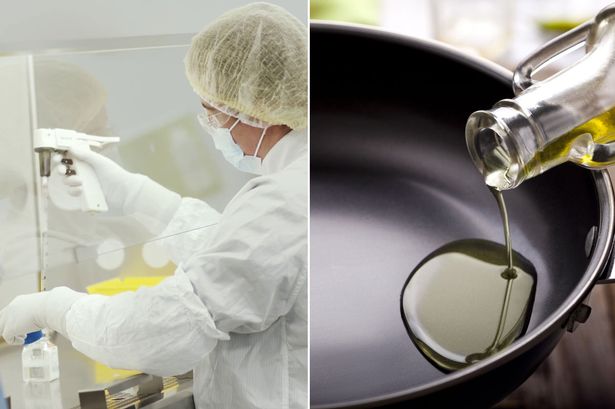A chemical used in everyday products including waterproof clothing and pizza boxes could reduce the effects of a coronavirus vaccine, scientists fear.
Man-made Per- and polyfluoroalkyl (or PFAS) is also used in non-stick pans and has been linked to an increased risk of liver damage, decreased fertility and cancer.
Small traces of PFAS have also commonly been found in the bodies of people in the US and several other countries.
But now scientists have warned that PFAS could also reduce the effectiveness of certain administered vaccines which may include the new heralded coronavirus jabs, Guardian reports.
Philippe Grandjean, a contract professor of environmental health at the Harvard School of Public Health, said it is unknown if the chemicals will impact the effectiveness of any Covid-19 vaccine but it could be a “risk”.
He added: “We would have to cross our fingers and hope for the best.”
Research led by Professor Grandjean has discovered that children exposed to PFAS had significantly reduced antibody concentrations after given tetanus and diphtheria vaccinations.
A follow-up study of adult healthcare workers also found similar results.
Separate research by the professor suggests that a certain type of PFAS, called perfluorobutyrate (PFBA), accumulates in the lungs and can increase the severity of illness suffered by people who contract coronavirus.
However this study has yet to be peer-reviewed.
US pharmaceutical giant Pfizer and German partner BioNTech SE, who are developing a messenger RNA-based vaccine which is similar to tetanus and diphtheria jabs, said it is 90% effective and so far have no serious safety concerns.
Professor Ugur Sahin, chief executive of BioNTech, said: “If everything continues to go well, we will start to deliver the vaccine end of this year, beginning next year.”
It is uncertain if PFAS contamination would disrupt the vaccine’s effectiveness on protecting people against coronavirus.
There are several other vaccine contenders that are being developed around the protein spikes of Covid-19 and there are fears they too may have their effectiveness diminished if someone has been contaminated with PFAS.
Professor Grandjean said: “People with high exposure to PFAS have a non-protective and very low antibody levels after four vaccinations for diphtheria and tetanus. So if a vaccine for Covid is similar, the PFAS will likely inhibit the response from a vaccine.
“But it is an unknown at this stage.”
Newly elected US president Joe Biden has pledged to crack down on PFAS pollutants by classifying them as hazardous substances.
An estimated 200 million Americans eat food and drink water contaminated with PFAS – which is dubbed “forever chemicals” as they linger in the body.
As a coronavirus vaccine is expected to be rolled out for a majority of Americans by mid-2021 any new regulation surrounding PFAS will need to be raced through.
David Andrews, a senior scientist at the Environmental Working Group, said: “I do worry constantly about exposure for both known and unknown PFAS, and the impacts they are having on both our immune systems and on our health in general.
“PFAS exposure is an urgent public health crisis.”



